Top 5 Books on Stock Market (for Traders)
In this article, we’re going to talk about 5 books that every trader must-read.
Now, these books are not “nice to haves” or one of those that you would read during the next vacation.
These are mandatory textbooks for you, if you are a serious trader and you have to read them with the same rigor with which you read back in your school days. Unfortunately, I read some of these books later in my trading career. I wonder how much time and money I would have saved had I read these books earlier.
Alright, let’s dive into the list.
1. “Trading in the Zone” by Mark Douglas
This is by far one of the best books on trading and it is ideal for beginners because it’s written in a very easy to understand language.
It covers a lot of ground, for example, it explains why consistency is more important than being right. Why it’s important to take full responsibility for all the trades- the good, the bad and especially the ugly. Believe me, it’s hard.
Why does our perception of the market and ourselves matter? How to develop an understanding and appreciation of risk management? And how to find your edge?
Here is some great advice that I took from the book:
- Forget results, focus on the process: We are sometimes so ultra-focused on absolute profits and losses that we don’t realize that our process itself might be faulty or unsustainable.
- Think in terms of probabilities: A major breakthrough from this book for me was the mindset of probabilistic thinking. To know that trading is not about certainties; it is about managing and embracing probabilities.
- Find a trading style that fits your personality: I always have been an aggressive intraday trader and felt guilty sometimes for that. But after reading this book, I feel much more comfortable in my style and demeanour.
2. Market Wizards by Jack Schwager
Jack Schwager interviews some of the world’s savviest and most high-profile traders and what comes out is a non-stop stream of wisdom and insights.
Here are some of the gems:
- I have two basic rules about winning in trading as well as in life: (1) If you don’t bet, you can’t win. (2) If you lose all your chips, you can’t bet. In other words, finding that middle ground between greed and fear.
- I don’t think you can consistently be a winning trader if you’re banking on being right more than 50 per cent of the time. You have to figure out how to make money being right only 20 to 30 per cent of the time. Win big, lose small.
- The markets are not random, because they are based on human behaviour, and human behaviour, especially mass behaviour, is not random. It never has been, and it probably never will be.
Speaking of interviews with successful traders, you might also want to check out this YouTube channel called “Chat with Traders”. The host Aaron Fifield has interviewed some really great traders out there.
3. “Thinking Fast and Slow” by Daniel Kahneman
Technically speaking, it is not a trading book. It is actually a book about the inner workings of the brain.
The reason it is a must-read is that trading is essentially decision making under pressure and unless we understand how the mind arrives at decisions, we will never be in full control.
The book is written by Nobel Laureate Daniel Kahneman and just loaded with insights. When I started reading the book, I thought of highlighting the important points. After 3 or 4 pages it became obvious that if I keep doing that the whole book had to be highlighted- it is that good!
One of the important things that the author talks about is the concept of the fast and slow brain, which he calls System 1 and System 2.
The fast brain operates automatically and quickly, with little or no effort and with a sense of voluntary control. Answer this: 2+2 equals to ….? 4. Now you didn’t calculate 2+2, you just knew. How about “bread and…..” now, u didn’t think what would be a logical match for a break. You knew it would be butter.
We all have developed a sort of automatic response to everyday situations and that is very helpful in making our lives easier. Imagine if you have to add 2+2 every time. The slow brain is the one that does the heavy lifting. It is engaged when you do something like “file your taxes” or “solve a complex math problem 2989+4689
Engaging the slow brain is painful and our mind is programmed to put as little possible on it. It is essentially the conservation of energy.
The fast brain is your default mode of thinking. Over 90% of what you do is done by the fast brain.
However, from a trading standpoint, we need to change this default setting. The fast brain may be good for taking care of day to day stuff but for trading, we need the horsepower of a slow brain. The book explains lucidly how to get the slow brain to take charge.
Another important learning was the law of small numbers, which is our tendency to generalize based on a very small sample of observations. We like to hear and see evidence that supports our view and actively ignore the contrary.
In trading, that means not accepting your mistake early on and let the losses pile on. It can be very dangerous.
Another way is how we look at trading strategies. I see traders who test a strategy out for a week and are so confident that they’re ready to put all the trading capital on it. For a strategy to be effective, you need to test it out for a long enough period so that it stands the test of time and seasonality. If a strategy worked in 2018 but didn’t in 2019 or 2020, then what’s the point?
Anyway, long story short: get hold of this book ASAP.
4. Trading for a living by Dr. Alexander Elder
Dr Elder’s book is broadly recognized as a practical guide to getting started with trading. He is an actual doctor by the way and worked as a Psychiatrist in New York and then taught at Colombia University.
He talks about the 3 M’s: Mind, Method and Money and how they influence each other.
Not just psychology, in this book, we also learn about techniques like “Elder ray”, development of a trading system, understanding crowd mentality, spotting high probability trades etc.
A lot of good stuff!
5. “Reminiscences of a Stock Operator” by Jesse Livermore
This book was published almost 100 years back but is still the most popular book among professional traders. Jesse Livermore was a high-stake trader who made and lost his fortunes several times in the stock market.
His story is amazing and every word coming out of this book is pure gold.
Howdy!
If you’re here for the first time, let’s get introduced.
VRD Nation is India’s premier stock market training institute and we (Team VRD Nation) are passionate about teaching each and every aspect of investing and trading.
If you’re here for the first time, don’t forget to check out “Free Training” section where we have tons of free videos and articles to kick start your stock market journey.
Also, we got two awesome YouTube channels where you can continue the learning process.
Must-Read Articles
Top 5 Books on Stock Market (for Traders)
In this article, we’re going to talk about 5 books that every trader must-read.
Now, these books are not “nice to haves” or one of those that you would read during the next vacation.
These are mandatory textbooks for you, if you are a serious trader and you have to read them with the same rigor with which you read back in your school days. Unfortunately, I read some of these books later in my trading career. I wonder how much time and money I would have saved had I read these books earlier.
Alright, let’s dive into the list.
1. “Trading in the Zone” by Mark Douglas
This is by far one of the best books on trading and it is ideal for beginners because it’s written in a very easy to understand language.
It covers a lot of ground, for example, it explains why consistency is more important than being right. Why it’s important to take full responsibility for all the trades- the good, the bad and especially the ugly. Believe me, it’s hard.
Why does our perception of the market and ourselves matter? How to develop an understanding and appreciation of risk management? And how to find your edge?
Here is some great advice that I took from the book:
- Forget results, focus on the process: We are sometimes so ultra-focused on absolute profits and losses that we don’t realize that our process itself might be faulty or unsustainable.
- Think in terms of probabilities: A major breakthrough from this book for me was the mindset of probabilistic thinking. To know that trading is not about certainties; it is about managing and embracing probabilities.
- Find a trading style that fits your personality: I always have been an aggressive intraday trader and felt guilty sometimes for that. But after reading this book, I feel much more comfortable in my style and demeanour.
2. Market Wizards by Jack Schwager
Jack Schwager interviews some of the world’s savviest and most high-profile traders and what comes out is a non-stop stream of wisdom and insights.
Here are some of the gems:
- I have two basic rules about winning in trading as well as in life: (1) If you don’t bet, you can’t win. (2) If you lose all your chips, you can’t bet. In other words, finding that middle ground between greed and fear.
- I don’t think you can consistently be a winning trader if you’re banking on being right more than 50 per cent of the time. You have to figure out how to make money being right only 20 to 30 per cent of the time. Win big, lose small.
- The markets are not random, because they are based on human behaviour, and human behaviour, especially mass behaviour, is not random. It never has been, and it probably never will be.
Speaking of interviews with successful traders, you might also want to check out this YouTube channel called “Chat with Traders”. The host Aaron Fifield has interviewed some really great traders out there.
3. “Thinking Fast and Slow” by Daniel Kahneman
Technically speaking, it is not a trading book. It is actually a book about the inner workings of the brain.
The reason it is a must-read is that trading is essentially decision making under pressure and unless we understand how the mind arrives at decisions, we will never be in full control.
The book is written by Nobel Laureate Daniel Kahneman and just loaded with insights. When I started reading the book, I thought of highlighting the important points. After 3 or 4 pages it became obvious that if I keep doing that the whole book had to be highlighted- it is that good!
One of the important things that the author talks about is the concept of the fast and slow brain, which he calls System 1 and System 2.
The fast brain operates automatically and quickly, with little or no effort and with a sense of voluntary control. Answer this: 2+2 equals to ….? 4. Now you didn’t calculate 2+2, you just knew. How about “bread and…..” now, u didn’t think what would be a logical match for a break. You knew it would be butter.
We all have developed a sort of automatic response to everyday situations and that is very helpful in making our lives easier. Imagine if you have to add 2+2 every time. The slow brain is the one that does the heavy lifting. It is engaged when you do something like “file your taxes” or “solve a complex math problem 2989+4689
Engaging the slow brain is painful and our mind is programmed to put as little possible on it. It is essentially the conservation of energy.
The fast brain is your default mode of thinking. Over 90% of what you do is done by the fast brain.
However, from a trading standpoint, we need to change this default setting. The fast brain may be good for taking care of day to day stuff but for trading, we need the horsepower of a slow brain. The book explains lucidly how to get the slow brain to take charge.
Another important learning was the law of small numbers, which is our tendency to generalize based on a very small sample of observations. We like to hear and see evidence that supports our view and actively ignore the contrary.
In trading, that means not accepting your mistake early on and let the losses pile on. It can be very dangerous.
Another way is how we look at trading strategies. I see traders who test a strategy out for a week and are so confident that they’re ready to put all the trading capital on it. For a strategy to be effective, you need to test it out for a long enough period so that it stands the test of time and seasonality. If a strategy worked in 2018 but didn’t in 2019 or 2020, then what’s the point?
Anyway, long story short: get hold of this book ASAP.
4. Trading for a living by Dr. Alexander Elder
Dr Elder’s book is broadly recognized as a practical guide to getting started with trading. He is an actual doctor by the way and worked as a Psychiatrist in New York and then taught at Colombia University.
He talks about the 3 M’s: Mind, Method and Money and how they influence each other.
Not just psychology, in this book, we also learn about techniques like “Elder ray”, development of a trading system, understanding crowd mentality, spotting high probability trades etc.
A lot of good stuff!
5. “Reminiscences of a Stock Operator” by Jesse Livermore
This book was published almost 100 years back but is still the most popular book among professional traders. Jesse Livermore was a high-stake trader who made and lost his fortunes several times in the stock market.
His story is amazing and every word coming out of this book is pure gold.

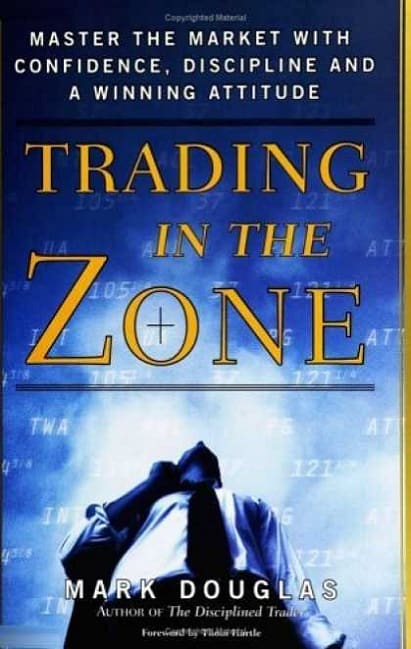
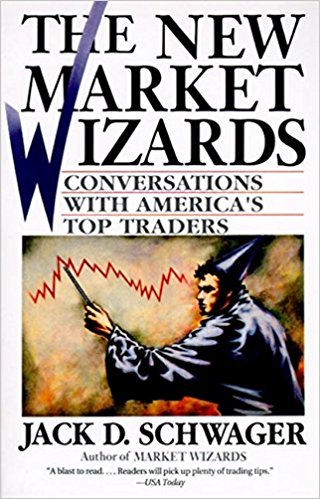

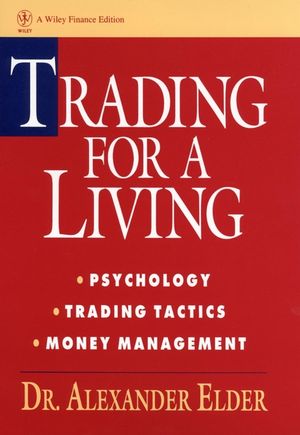
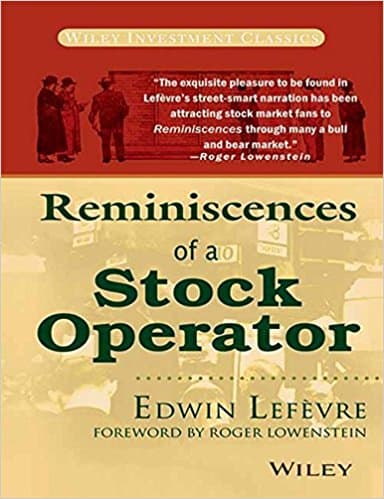
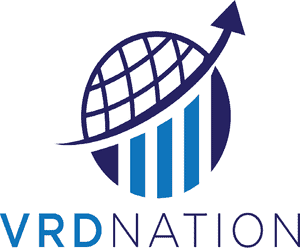


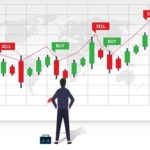


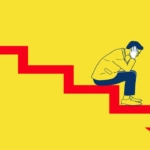


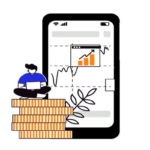




![What is Virtual Contract Note [Zerodha]](https://www.vrdnation.com/wp-content/uploads/2023/10/maxresdefault-virtual-note-500x383.jpg)
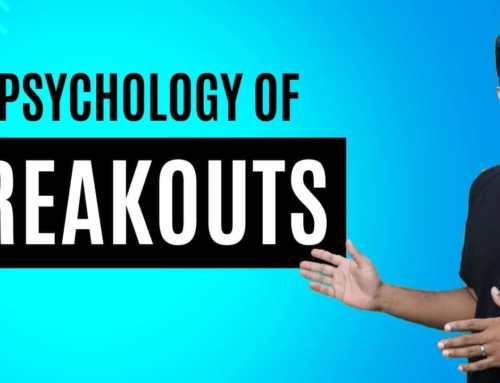


Very interesting lession for trading specially for me, I want teach more about trading